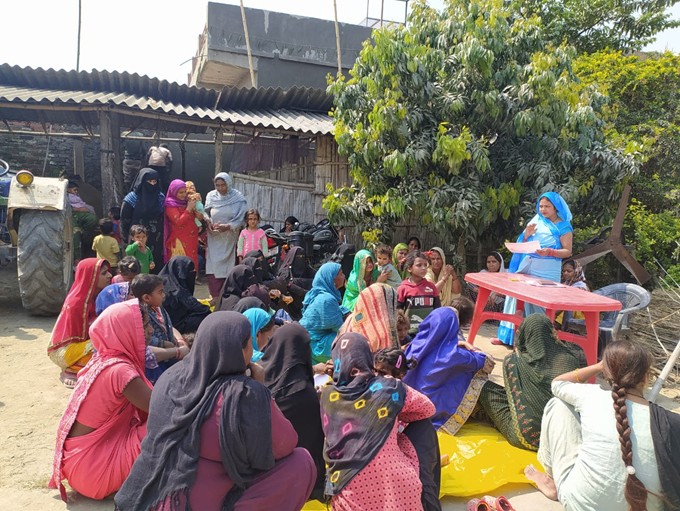Transforming Lives Through Nutrition (TLTN)

-
 Project Cycle: August 2024 till date
Project Cycle: August 2024 till date
-
 Implementation Area: 4 Rural Municipalities of West Nawalparasi district (Palhinandan, Sarawal, Pratatppur and Susta)
Implementation Area: 4 Rural Municipalities of West Nawalparasi district (Palhinandan, Sarawal, Pratatppur and Susta)

TLTN Project Strategy in Nepal
The project will work on both the supply and demand side to improve nutrition in communities. In doing so, the project will create exponential impacts, particularly around the
household level underlying determinants of good nutrition defined by UNICEF's 2020 Conceptual Framework on the Determinants of Maternal and Child Nutrition (that is: Food, Practices, and Services),
While collaborating others to influence the community/ society level nutritional enabling determinants such as nutrition governance and social norms (eg, GESI).

02
GOALS
Improved health, and nutrition, along with economic growth, engage market system with a focus on pregnant and lactating women and children under 2 years

03
STRATEGIC OBJECTIVES
Improve the overall health and nutrition of pregnant women, lactating mothers, and children under 2 years by implementing integrated interventions
Focus Area
Project Focus area and Expected Results
Supply Chain and Small Market Enterprises
- Stimulate competitive market ecosystems that provide affordable and nutritious foods and health services, resilient to shocks.
- - Support to community-led childcare centers
- - Identification of small and medium enterprises with the potential to process and/or distribute complementary foods (such as super flour)
- Engage in dialogue with the Department of Food Technology and Quality Control to set a standard nutritional composition of the complementary food produced from the enterprises.
Agriculture and Food System
- Increase physical and economic access to sufficient, safe, and nutritious foods
- - Train agro-dealers in climate smart and nutrition sensitive technologies
- - Support the establishment/strengthening of collection centers
- - Facilitate locally contextualized agronomic and market-based local plans to help to transition toward regenerative agricultural practices.
- Identify and facilitate uptake of small-scale value addition opportunities, creating market access opportunities for non-perishable goods.
Water Sanitation and Hygiene
- Strengthen the capacity of small enterprises to manufacture and distribute affordable WASH technologies and to conduct effective social marketing campaigns to change household behavior
- - Conduct a market scoping exercise using HCD to understand key sanitation products and services and ways to engage private sectors.
- - Baby WASH: Design, produce, promote and distribute potty products to make latrines more accessible to children.
- - Deploy hygiene and sanitation BCC materials to households, government, and communities.
- Work with private sector enterprises for the enhanced adoption of water technologies.


